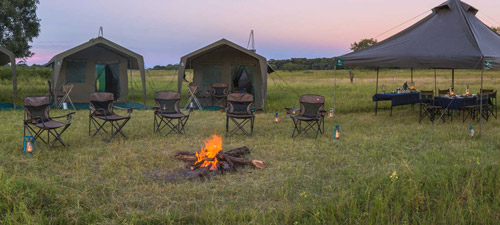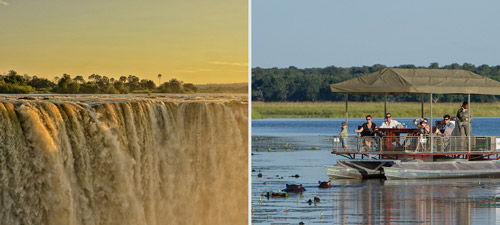Monday the 16th of March 2015: two German travellers on safari, Martin and Christin Kotthoff, led to the arrest of two ivory dealers. The bust, which involved the sale of four elephant tusks, took place at a safari camp near Kasane, Botswana.
The couple were on a safari holiday when they were approached by Karunga Makuyungo, a local safari camp staff member, who asked if they wanted to buy “elephant horn”. Four tusks were offered to them for a price of US$6,000. The couple pretended to be interested but went immediately to the local Wildlife Anti-Poaching Unit to report the offer.
Together with a team of five members from the Wildlife Anti-Poaching Unit and the local police, they managed to apprehend Karunga and his accomplice Shadreck Kaimbanemoyo, a staff member of the same camp. The two were caught red-handed during the camp’s handover of the four tusks.

The camp owners were not involved in the operation and were shocked when informed about the incident. Karunga Makuyungo and Shadreck Kaimbanemoyo are now awaiting trial in prison.

The Kotthoffs currently live in Cape Town and have travelled extensively through Africa. Christin Kotthoff, a conservationist and member of the non-profit organisation OSCAP (Outraged SA Citizens Against Poaching), says, “Botswana is the leading country on the continent when it comes to protecting African wildlife. President Ian Khama understands the importance of wildlife for the country’s income from tourism. We are impressed by how professionally the local authorities handled the whole operation.”

Martin Kotthoff points out, “Botswana has a strong political will to fight corruption. Hence we were optimistic that the authorities would take our report seriously. We hope the ivory dealers will get the punishment they deserve, which will also deter other wildlife criminals.”

Christin Kotthoff explains, “Tourists from overseas visit Africa on safari to experience its unique wildlife. Today not only elephants are highly threatened, but also rhinos and lions. Less wildlife means fewer tourists, fewer jobs and less income. Thus poaching and the illegal wildlife trade is not just a threat for the animals, but also for the African economies and the African people.”


To comment on this story: Login (or sign up) to our app here - it's a troll-free safe place 🙂.![]()
HOW TO GET THE MOST OUT OF AFRICA GEOGRAPHIC:
- Travel with us. Travel in Africa is about knowing when and where to go, and with whom. A few weeks too early / late and a few kilometres off course and you could miss the greatest show on Earth. And wouldn’t that be a pity? Browse our ready-made packages or answer a few questions to start planning your dream safari.
- Subscribe to our FREE newsletter / download our FREE app to enjoy the following benefits.
- Plan your safaris in remote parks protected by African Parks via our sister company https://ukuri.travel/ - safari camps for responsible travellers






